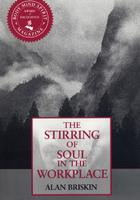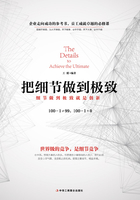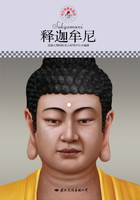I was still a guest of the wardroom when the next gale arose in the middle of the night and it woke me with a sense of the ship in ampler if not more violent motion. I lay for some time calculating the direction of the wind from the movement of the ship under me. She was over to starboard mostly and never came over to the larboard more than about to an even keel. Every now and then she bucked like a horse. Now and then she jibbed like one too—but not as she would have done with a wind over the bow. I reasoned sleepily that the wind was on the larboard quarter and we were moving in a southerly direction with increased speed. In a ship there is nothing which pleases so much as movement in the right direction! Our right direction was east, but southeast in search of the westerlies which are said to circle the earth in the high southern latitudes was a good second best. I lay awake therefore, thinking of our crew, one part of the watch pumping, one on deck with their eye on rigging and canvas, a lieutenant and a midshipman standing as officers of the watch—our moody captain emerging now and then from his quarters to survey the whole—and our blunt bows dividing the billows faster than a man could walk! We were getting on. Life would have been more than tolerable had it not been for the itch—and my hand reached down hardly with my volition. At times the itch seemed worse than our dangers.
The ship pitched heavily, a ninth wave perhaps. I sat up in my bunk with a jerk, for the movement had been followed by a cry from above me—from one deck higher towards the open air, up in the passenger lobby or from one of the cabins ranged along either side. I waited for a repetition but it did not come, so I lay down once more. But the touch of cooler air outside my bedclothes now made the damp heat beneath them less tolerable. I was itching again.
I swung my legs out of the bunk and stood reeling in the near-complete darkness. A faint snore came from the cabin next to mine where Mr Cumbershum was sleeping after his turn at the middle watch. I felt round and got on my greatcoat—the one with three capes and now by no means the elegant garment in which I had begun this seemingly endless voyage. A nightshirt and a greatcoat! I pulled on woollen socks, then thrust my feet into seaboots. I got out into the wardroom. The dim horizon slanted across the great stern window at an angle. The dawn itself was not visible and a more diffused light allowed me to do no more than detect the line between sea and sky. We pitched again—a little more violently this time, as if our ship had come across a wave left from a wind in some other direction. It was followed again by the cry from above me—a cry of anguish, there was no doubt about that. Scarce knowing what I did—hardly awake—perhaps connecting the anguish with my own itch—yet one woke unwillingly and half one's mind was always tending bedward—I clambered up the stairs into the passenger lobby. But I had scarcely grabbed the rail outside our cabins when we pitched and the cry came again, and came from the cabin of our comic philosopher, Mr Prettiman!
Now the next door, Miss Granham's, his fiancée's, opened and the lady appeared. She held the rail, opened his door and disappeared inside. I hastened across the lobby—a feat helped by the ship which tipped to starboard again and set me for a moment or two positively tripping downhill! What had begun with a spontaneous attempt to offer help became a run at the end of which I thumped loudly into Mr Prettiman's cabin door and only just contrived to heave myself off before Miss Granham herself opened the door from inside. She stood there, looking at me. She wore a white nightdress. Her hair was decently concealed by a night-bonnet, or whatever it is called, and a large shawl hung over both shoulders. Her face was not welcoming.
"Mr Talbot?"
"I heard him cry out. Can I—that is—"
"Can you be of assistance? Thank you, no."
"A moment, ma'am. Paregoric—"
"The purser's laudanum? I have it."
She paused. I became conscious suddenly of my half-naked legs and of my nightshirt, which was showing between the open skirts of my greatcoat. Miss Granham smiled glacially and shut the door in my face. Another lurch sent me reeling along the rail and wincing as the cry burst again from the poor devil. Comic he might be—but the comic are able to suffer as much as the rest of us! I moved along the rail to the entry to the lobby and stood looking out at the waist in an effort to put some distance between me and his cries, but it was not far enough. I moved out into the cold dawn air and light and huddled under the larboard mainstays. Above me they were casting the log, for I heard a voice give the order.
"Turn!"
Then after a long pause:
"Five and a half knots, sir."
"Make it so."
There came the squeak of chalk on the traverse board. Five and a half knots! More than a hundred and thirty land miles to the southeast in twenty-four hours—and all from the sails on the one mast. Soon, surely, we should find those westerlies and be blown all the way to Sydney Cove!
Men were mustering forrard. There was a period of casual ritual as the watch changed. Mr Smiles and young Tommy Taylor handed over the watch on the quarterdeck to Mr Askew, the gunner. It was eight o'clock in the morning and the dawn bright all along the east. Then I saw my friend Lieutenant Summers, and Lieutenant Benét come to the top of the stairs from the quarterdeck and it was plain that there had been a disagreement between them. Charles, mildest of men, looked stormy. Mr Benét on the other hand seemed even more brisk and cheerful than usual. Behind them appeared Mr Gibbs, the carpenter, and Coombs, the blacksmith. This was something new! Benét stood back with what looked like courtesy to allow the first lieutenant precedence down the stair, but in his grin and in the moody face of my friend was neither friendship nor consideration. There was no doubt about it. Clever young Mr Benét was triumphing. He carried a small and rather complicated object in his hands. It appeared to be made of wood and metal. Charles strode into the lobby and down the stairs without looking at me. Mr Benét and the blacksmith stood in talk with Mr Gibbs, who knuckled his forehead, then followed the first lieutenant. Mr Benét thrust the model into the blacksmith's hand and waved him forward.
It was too much. I had to be informed: and besides—
"Good morning, Mr Benét. There is something afoot."
"There is indeed, Mr Talbot."
"May I be told? Shall you celebrate it in verse?"
"I am not sure that you should be told, Mr Talbot. After all, you are of the first lieutenant's party, are you not?"
"Party? Do you mean 'faction'? What is all this?"
"We are absurd, you know—but the thing has happened. Ever since my success in getting weed off her bottom with the dragrope and against the advice of the first lieutenant—"
"You pulled a baulk of timber off her keel!"
"And added more than a knot to her speed."
"Just one knot, the first lieutenant said."
"Whatever it is, we are now fated, he and I, to be on either side of the fence, backed by those who think I am saving our lives on one hand and those who think I took too big a risk on the other."
I was loath to quarrel with the man. He was, after all, in some sort the only connection I still had with a certain young lady.
"But 'faction', Mr Benét! As if the ship were a country in little!"
"Well, is it not?"
"He is your superior officer. What is more, these cables stretched across the deck—his frapping, as he calls it—are what stands between us and the ship's falling apart!"
"An idea old as St Paul, Mr Talbot. You credit the first lieutenant with too much invention."
"That object you gave to Coombs. Has it anything to do with the argument?"
"Everything. It is a model of the keelson, the shoe of the foremast and the lower part of the foremast itself. Seeing is believing. I have thought out a scheme not just for securing the mast—for you know it moves no matter what we do—but also for bringing it back to its former state. If I succeed we shall be able to spread sail on it again and therefore balance it with sails on the mizzen. Another two knots, Mr Talbot, in a moderate wind!"
"You showed the model to Captain Anderson!"
"Seeing is believing. He is convinced."
"But Charles not! I have faith in him, Mr Benét!"
"Oh yes. But he is a—well. He is a friend of yours and I say no more."
As if to indicate his resolve to be uncharacteristically silent Mr Benét clapped one hand over his mouth, sketched a naval salute with the other and then ran off, skipping over the cables of the frapping, and disappeared into the fo'castle. I hurried away down the ladders to the wardroom. Charles stood there, staring out of our stern window with his usual indifference to our movement. He turned when he heard me open the door.
"What is all this about, Charles?"
He did not pretend to misunderstand me.
"This time Benét wishes to give us back a couple of masts, that is all."
"And the captain agrees?"
"Oh yes. Mr Benét is a most persuasive young man. He will go far if he lives."
"If someone does not kill him first! But what is this risk?"
"Briefly, the foremast has split the shoe—the block of wood on which it stands. So the foot of the mast is able to move. We have stayed the mast below decks, rigged tackles, used chocks, wedges and props and reduced the movement a little. Benét wants to reduce it altogether."
"Where is the danger?"
"Any mistake and the foot of the mast may slip and go through the ship's bottom. That is all."
"He must be stopped!"
"More than that, his method involves the use of fire, red-hot metal—you understand my objections? It is the dragrope all over again. The thing may succeed but the risk is too great."
"Who else is of your faction?"
"Is it come to that?"
"I am of your faction, too!"
"You must not say so. Do you not understand? You have no business to use that word!"
"Benét did."
"He should not have done so. Most of all he should not have used it to you. You are a passenger with no right to an opinion in the matter."
I had no answer. He sank into the chair opposite me. He smiled bitterly.
"You would make it a matter of public discussion."
"A rebuke from you—"
"I did not mean a rebuke, only a warning. The captain has heard our arguments over a professional matter and given his decision. We must abide by it."
"I smell trouble."
"Stay out of it."
"We are friends, are we not? I must help you!"
He shook his head.
"I believe I may go so far as to make a formal protest at the appropriate time. Coombs is setting about the ironwork now. It is two vast plates—for which we have barely enough metal—four iron rods with screw ends and nuts to screw on them—"
"Do not tell me more, for I see it all! He will do what my father made them do to the old cottages down by the river: iron bars made red-hot which pulled some bulging walls together! I remember it well, for I saw it when I was a small boy—how the crosses on the ends of the rods pulled in the walls as the hot metal cooled. It was exciting as a Fair Day!"
"Was the building made of wood?"
"Brick."
"It will not have escaped your notice that we are made of wood. His bars will extend, red-hot, through four solid foot of timber—I almost heard your jaw drop! Of course, he will have holes bored wider than the rods and swears the heat will produce nothing inside the shoe but a thin layer of charcoal. His model worked, I allow him that. It produced plenty of smoke too."
"But only a while ago Captain Anderson was praising Benét for having no ironwork, no chain cable, no steam about him! A proper rope, blocks and canvas man!"
The first lieutenant struck the table with the flat of his hand.
"Listen to me, Edmund! We are still in mortal danger even if the mast should not go through the bottom! Have you watched a fireback as the fire dies down? How the sparks move through the layer of soot on the metal as if they were alive? Have you never seen a fire, apparently dead, brought to life again and flare up? It will be shut in there—in the shoe. We are to sail on gaily with that added to all the rest! Added to the cranky hull, the jury rig, the distance, the terrible weather towards which we are making our clumsy way and which we need because it is the only force which will get us to land and shelter before the fresh water and even the food run out—"
He paused for breath, and in that silence the sound of the water running and thumping on the outside of our hull was only too clearly audible.
"Forgive me, Edmund. That young man tries me beyond bearing. He thinks he can find our longitude by lunar distance—he thinks—oh, he thinks this and that! I should not have said so much. I have fallen into the error against which—"
"You can say what you like to me and I shall be honoured to guard your secrets with my life."
It made him smile.
"No, no. Just keep quiet, old fellow. Forget the whole business. That's all I ask."
"I will keep quiet. But I cannot forget it."
He rose to his feet and went to the stern window.
"Edmund!"
"What is the matter?"
"Do you trust me?"
"You sound excited—some more danger? Of course I do!"
He came back quickly to the table.
"Go and get into your daytime rig—no oilskins—then into the waist—stand there in the open—don't stir no matter what happens—hurry!"
I rushed into my borrowed cabin, tore off my greatcoat and nightshirt—huddled on my daytime clothing and was out again more quickly than I have ever changed in my life. I reached the waist thoroughly out of breath and had to hang on the mainstays to get it back. I saw Mr Brocklebank gathering his decayed coach cloak about him and lumbering back into the lobby. There seemed to be nothing about the waist to cause Charles's excitement. I leaned on the rail and stared astern.
"Well!"
What was astern of us and up wind was the blackest cloud I have ever seen in my life. Here and there it was touched with sour grey, giving it just the appearance of dirty water when you have done your worst with it and the steward has come to remove it from your disgusted sight. Moreover, this cloud was coming rapidly nearer and bringing its own wind with it—as I now saw it did! For our sails thundered, then filled again as our bows moved along the horizon from starboard to larboard. The cloud seemed to reach right down to the water and in a second, it seemed, it had enveloped us. The water was deadly cold, hissing, constant as the flow of a river which fell on me and took away my breath all over again. It soaked and resoaked my clothing, so that I loosed my hold on the mainstays and stumbled towards the lobby—only to remember Charles's prohibition and stumble back again, for I partly understood it though I cursed him for the first and last time in my life. The torrent continued to fall over me and my soaked clothes clung to me and the water rushed out of my unmentionables as if they had been drainpipes. Suddenly the cold increased as a fresh wind pushed my clothes even closer against me. Then as by magic the water ceased to thunder on the deck. I lifted my head. The wind was fierce in my face and the sea and sky were both alike dark. Webber, the wardroom steward, stood in the entry to the passenger lobby. He was grinning like a gargoyle.
"Mr Summers's compliments, sir. You may come in now you've had your bath!"














